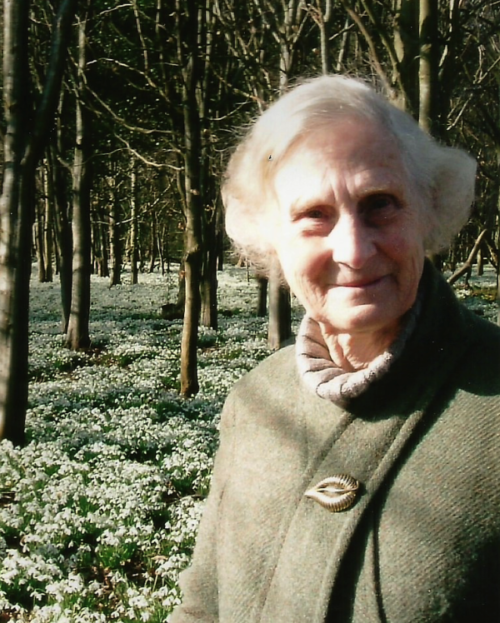
As the harmonic to the sounding string
Soft, tender, pure, remote, yet from within
Heard when the soul is like a well-tuned violin
Thus you have power within my life to sing.
-From “The Spirit of Love” songs for String Quartet and Soprano, by Ailsa Dixon
The opening words to the first song of The Spirit of Love by Ailsa Dixon (1932 – 2017) highlight the perfect marriage of words and music, and in this instance music written for string quartet and voice. We are fortunate today to give the world premiere of this piece at St. George’s Bristol with our colleague the soprano Lucinda Cox. Later in April 2020 we will perform another work by Dixon, her Variations on Love Divine.
Our journey to performing the music of Ailsa Dixon began with an introduction by her daughter, who asked if we were interested in taking part in a revival of Dixon’s music. At the time, we had been learning the rarely performed Quartet in E minor by Ethel Smyth, an epic work that shows influences from Brahms, Dvořák, and Wagner, and yet retains the distinct voice of Ethel Smyth. In a historical context, the life of Ethel Smyth was formidable – the first woman to conduct the Berlin Philharmonic; the first female composer to be staged at the Metropolitan Opera; the composer of the 1910 suffragette anthem The March of the Women. Yet for all her achievements, Smyth’s music continues to be ignored in the timeline of performance.
When the Villiers were asked to shine a light on Ailsa Dixon, the project intrigued me personally for this same reason, and to question the quiet struggle of women composers throughout history. It also caused me to confront my own implicit bias towards female composers. We are a quartet dedicated to championing the works of British composers, and Ailsa Dixon – like Ethel Smyth – had sadly been forgotten in the storytelling of British music. She needed to be included at the table.
Music for string quartet always carries a layer of deep intimacy from the composer, and in the Villiers it is our goal to be fully tuned-in to the emotions and personality of their music. In an interview with Meet the Artist, Ailsa Dixon revealed that her most significant influences were
“Fauré (for his harmonic suppleness), Britten (for his powers of evocation and empathy), and Bartok (studying his compositional processes at Durham stimulated an interest in his lively variations of time signature and the elasticity of musical motifs).”
These influences are certainly present in The Spirit of Love Divine, especially the harmonic suppleness carried through by Dixon’s string quartet-writing. At the same time, it is clear that Dixon has created her own harmonic voice. One aspect that has jumped out at us is her unique ability to simultaneously create vibrant and resonant harmonies within the quartet, yet these resonances also evoke dissonant, dark and conflicting emotions. Her songs, set to poetry by British poets A.E. Housman and Francis William Bourdillon, create a sensitive, beautiful world. We are honoured to be giving the premiere of this work, and the journey towards discovering Ailsa Dixon’s music has made a lasting impact as she has given us the power in our lives to sing.
-Carmen Flores
0 Comments